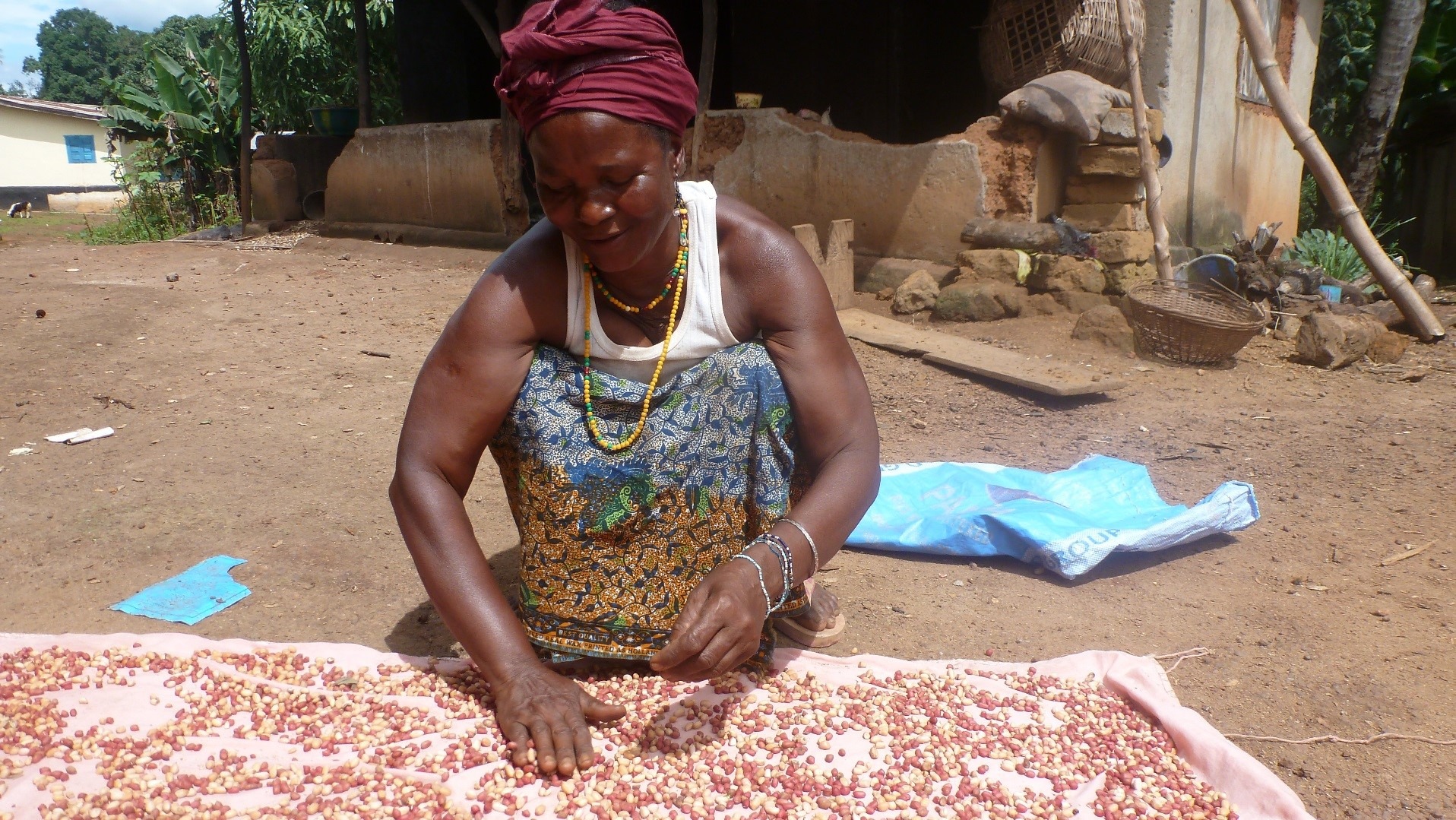
In Makaiba village in northern Sierra Leone, Bombali district, Kaday Fullah is grateful every morning when she opens her eyes. Before Kaday s involvement with the USAID-funded, Emergency Food Security Program, her children often went to bed hungry or begged neighbors for help. “I felt like dying. I was going blind. I had no money. I just thought, why am I living?” recalls Kaday, who is also a widow.
Things got worse for Kaday and her kids during the Ebola Virus Disease (EVD) outbreak that killed almost 4,000 people in Sierra Leone. Rural communities were hit hard by the state of emergency-imposed travel restrictions that saw closure of markets and limited access to farming and farm labor. Subsist-ence farmers unable to access their land and maintain their farms saw yields reduced by up to 30%, a significant decrease in household food stocks and income to pay for clothing, medical expenses and school fees. Market traders unable to access local markets had to sell off stocks to buy much-needed food.
SNAP+ Works with Community to Select Cash Transfer Recipients
To help, USAID’s Office of Food for Peace (FFP) provided emergency funding to ACDI/VOCA to implement SNAP+ in April 2015. To determine who would receive the cash transfers, ACDI/VOCA asked community volunteers to short list potential recipients based on need. SNAP+ also utilized a questionnaire developed in collaboration with the Government of Sierra Leone’s National Commission for Social Action (NACSA) to identify which households experienced catastrophic losses during the EVD outbreak. Once selected, the households received an unconditional monthly cash transfer for $30 over an 11-month period. Kaday was one identified by her community to benefit.
“My heart is happy and I thank SNAP+ for that. Without the cash transfer, I would have been blind.” —Kaday Fullah
Kaday used her first SNAP + payment to buy food and pay for eye surgery to remove the cataracts responsible for her blindness. She used the second payment to settle the debts she incurred during the peak of the Ebola outbreak. With the final two payments, she ensured her family’s food security by buying materials to produce groundnut paste, which she sells in the local market. Unlike traditional food aid, cash transfers enable participants to direct their recovery in a sustainable way. By investing in eye surgery, Kaday is now a productive member of her community able to care for her family.








